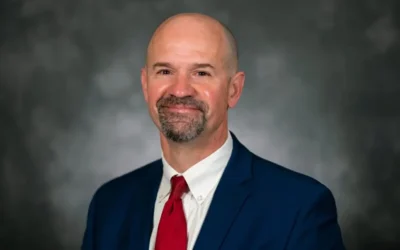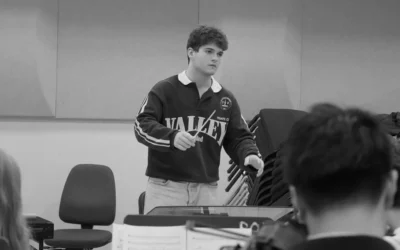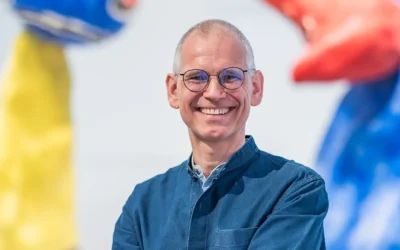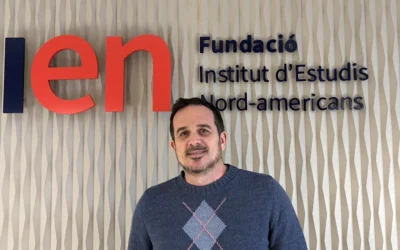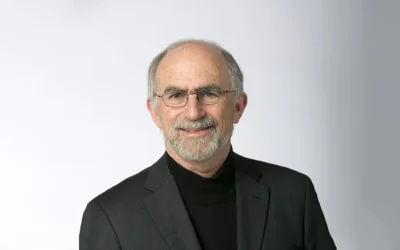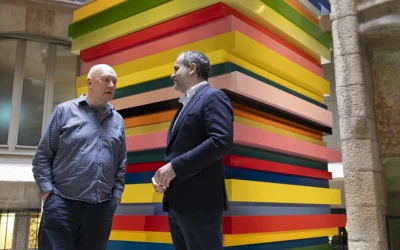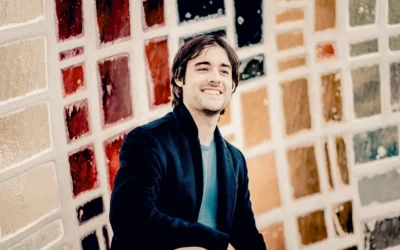Alexis Roig: “The United States already identifies Barcelona as a technological and scientific hub to be taken into account.”
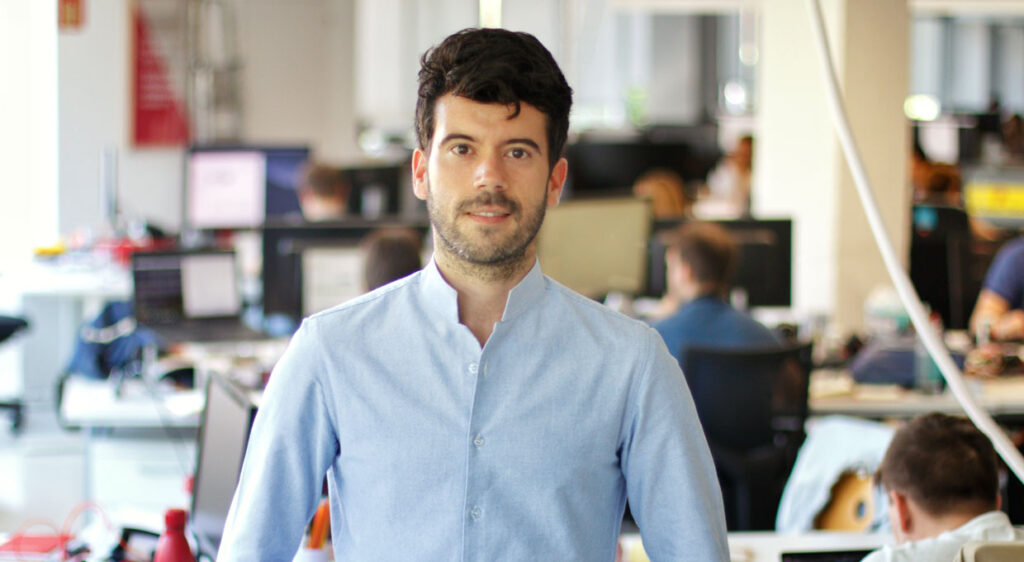
In 2018, the main organizations in Barcelona’s science, technology, public policy and international relations ecosystem came together. On the table they had a clear objective: to position the Catalan capital as a leading global player in science and technology thanks to the articulation of a powerful science diplomacy strategy. From that meeting came a manifesto signed by nearly 200 world-renowned scientists, the rectors of Catalan universities, technological experts and professionals in the field of international relations, and personalities from the political world, among others. The text became the seed of SciTech DiploHub, Barcelona Science and Technology Diplomacy Hub, a pioneering non-profit public-private partnership, supported by leading research centers, universities, organizations, start-ups, corporations and public institutions that works to position Barcelona as a global laboratory for science diplomacy.
Since then, this new collective project has not stopped working. Today, it has become the executive agency in charge of deploying Barcelona’s science diplomacy strategy and has all kinds of initiatives underway: from training and capacity building to representing the ecosystem in global organizations and events. But what does scientific diplomacy consist of? How does it contribute to strengthening the bridges that connect the Catalan technological and scientific ecosystem with the U.S.? What narrative is articulated and what mechanisms are used to explain Barcelona’s wealth in these areas? We asked Alexis Roig, CEO of SciTech DiploHub and Chief Science and Tech Envoy of Barcelona.
SciTech Diplohub was formed in 2018. What prompted it?
It was a combination of factors. On the one hand, Barcelona has always had a strong international vocation and has exercised good state diplomacy. In a way, it had become a leading city in the world of global municipalism. At the same time, more and more countries were beginning to develop a well-defined strategy of science diplomacy. They had realized that, through science and technology, they could have an impact on improving their international relations. With these two factors on the table, it was only a matter of time before an initiative like ours emerged in Barcelona.
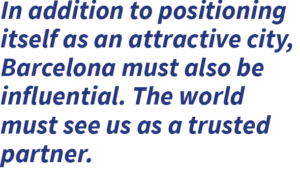 The concept of cultural diplomacy is more widespread than that of science diplomacy. To what do you attribute this?
The concept of cultural diplomacy is more widespread than that of science diplomacy. To what do you attribute this?
Simply because it is a newer concept. Although science diplomacy has been around for a long time, it has only been practiced in a structured way for about fifteen years. Just as cultural diplomacy uses music or gastronomy to strengthen ties with other countries, science diplomacy harnesses the soft power of science and technology to weave international relationships. The most fully formed definition of this field did not appear until 2010, in the hands of the British Royal Society and the American Association for the Advancement of Science (AAAS). Today no one doubts the power of science and technology in the field of geopolitics. We have seen it with pandemics, with the management of climate change, with the regulation of the ethical use of new technologies such as artificial intelligence…
What mechanisms does SciTech DiploHub use to explain Barcelona in the world?
A lot. On the one hand, we represent Barcelona’s scientific and technological ecosystem in the main global forums and events of the sector. We have been at COP27, at the UNESCO World Science Forum, at the United Nations Science Policy Forum…. We also organize capacity building and training programs. For example, every year we hold a summer school that brings together 50 senior executives from more than 30 countries for a week in Barcelona. In addition, we carry out ad hoc training for governments of other countries that want to improve their science diplomacy strategy, and we organize the Barcelona Innovation Day.
 What do they consist of?
What do they consist of?
We choose a reference city in the scientific and technological field and invite about a hundred representatives of our ecosystem to visit it. There, we have them meet their counterparts. These meetings result in a rich exchange of ideas and best practices in fields such as talent retention and attraction or technology transfer from universities to society. We have already visited Boston, London, Shanghai and Mexico City, for example.
You also reach out to consulates and embassies.
Yes, we approached the diplomatic corps through initiatives such as Diplomatic Circle. We realized that they knew a lot about the country and the city politically, economically and socially, but that science and technology were far away. To try to remedy this, every two months we organize meetings with the consulates and embassies in Barcelona so that they can learn first-hand about pioneering scientific and technological projects being carried out by Catalan universities, research centers, and companies.
Until now, Barcelona had not been presented to the world from a scientific point of view?
In the last 20 years a particularly good job has been done to position the city in the world, but it has been based on attractiveness: attracting investment, companies, tourism, talent…. This is fine, but apart from being an attractive city it must be influential. Barcelona must present itself to the world as a reliable partner with whom to do science, business, technology…
What image does the United States have of Barcelona’s scientific and technological ecosystem?
Six or seven years ago, we had to explain to them that we are an important city in these fields. Today, they associate it automatically. The relationship between Barcelona and the United States is still biased: many professionals go to train to work in their ecosystem. However, the number of Americans landing in Barcelona continues to grow. Today there are about 5,500. Of these, 70% work in the technology and knowledge industry. This is good news.
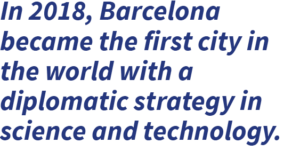 What does Barcelona offer them?
What does Barcelona offer them?
First, a lot of intangible attractions: a privileged climate and geography, an attractive culture, good air connections, a good quality of life, affordable salaries for multinational companies… However, if there has been a scientific explosion, it has been due to the three T’s. Barcelona brings together technology, talent and tolerance of society, which is key to the emergence of new ideas. Events like the Mobile World Congress have helped us a lot to position Barcelona internationally in the scientific and technological field. We take advantage of the congress participants’ visits to take them to visit major infrastructures in the sector, such as the Barcelona Supercomputing Centre or the Parque de Investigación Biomédica. Thus, when they later look for a new location in which to open a headquarters or an ecosystem with which to build relationships, they take Barcelona into account.
Even so, many professionals from here prefer to leave to work in the U.S. To what do you attribute this?
We lack resources at the universities and research centers. Unlike your universities, in Catalonia we have limited funding. The governance model of universities should also be rethought and the salaries that private sector companies pay to working talent should be revised upwards. Local investors still prefer to invest in more traditional sectors because they consider it less risky than start-ups. There are difficulties in attracting foreign venture capital to the sector, and there is a lack of mechanisms to inject funding into the projects that are born. In addition, scientific sponsorship also comes up against strict regulations. However, despite this panorama, we have a lot of success stories and brutal results. With much less funding than top American universities, many scientific publications are published, and international recognition is achieved. A great job is being done to put Barcelona on the international map and we will continue to work on it. In a noticeably short time, we have achieved goals that seemed unthinkable, such as getting Barcelona to have a voice and vote in the International Council for Science, one of the most important world bodies, where issues such as the regulation of bioethics are decided.
